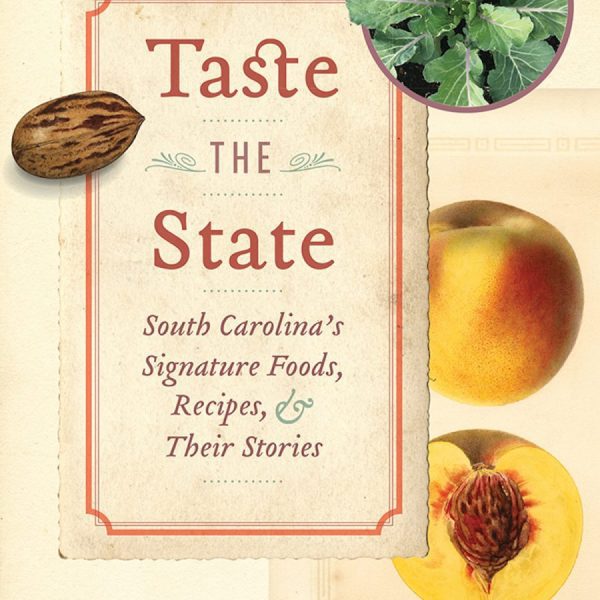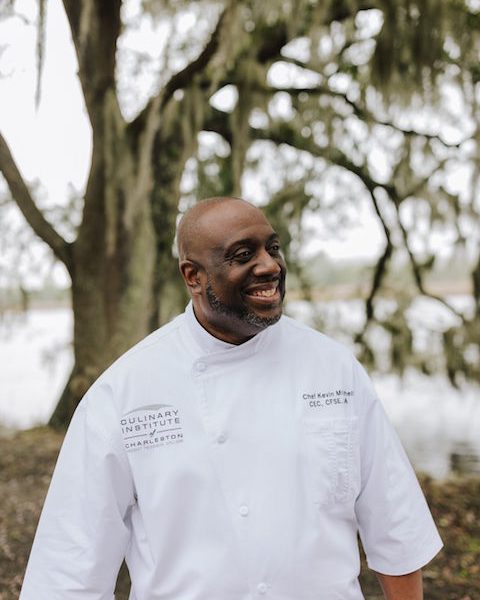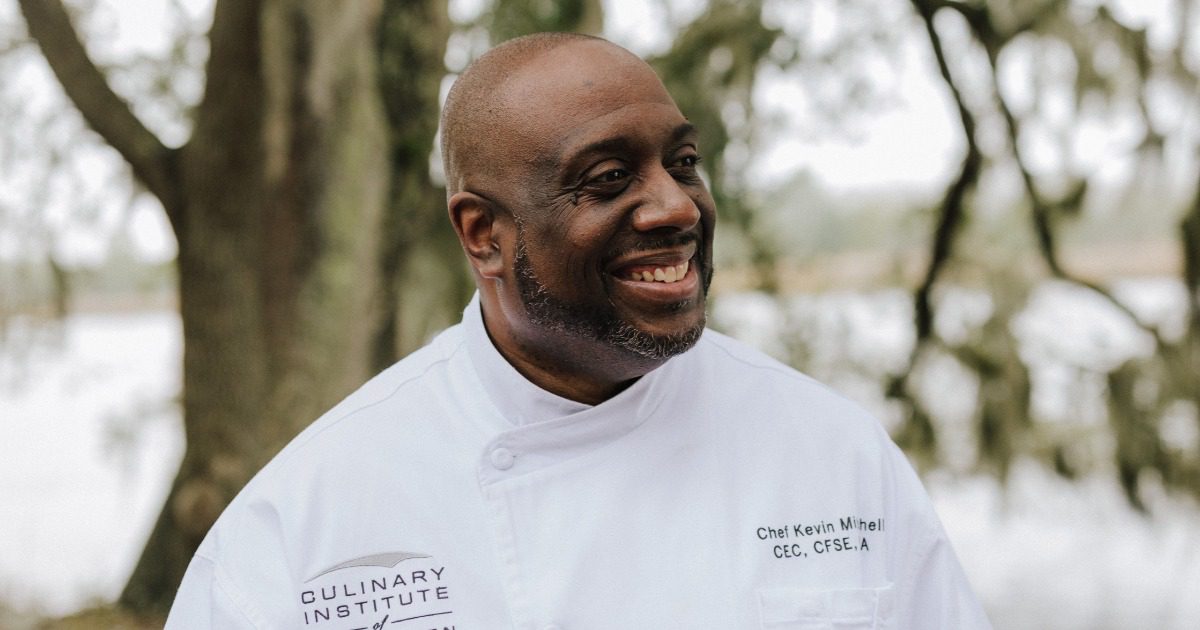The African American diaspora launched a wave of cooking traditions and styles throughout the United States that became synonymous with “Southern,” “comfort,” or “down-home” food. As descendants of enslaved people moved throughout and beyond the South, they adapted old family recipes to meet the changing ingredients and socioeconomic conditions. In the mid-20th century, the term “soul food” became broadly used to describe the style of food found in Black communities—a style reflected in many food traditions found in the South.
The 2021 Gather ‘Round event in Atlanta invited a panel of chefs and recent cookbook authors to discuss their thoughts on soul food and its influences on their cooking. Panelists included Kevin Mitchell, chef and instructor at the Culinary Institute of America in Charleston. Mitchell’s been on the road in the past few weeks, jetting between destinations as he promotes his new cookbook Taste the State: South Carolina’s Signature Foods Recipes and their Stories. Part historical compendium, part cookbook, this book, co-authored with David S. Shields, celebrates South Carolina’s mainstay ingredients and dishes and their origin stories (just check out these okra tomato fritters!).

Over his lifetime enjoying and later preparing Southern food, he made a connection between the past and present of South Carolina cuisine—and importantly, the people and communities who shaped it. In between jetting to destinations as he promotes Taste the State, Mitchell sat down to chat with TLP about the future of soul food, how his relationship with it has changed over his life, and his grandmother, Doris.
KEVIN MITCHELL DISCUSSES SOUL FOOD

The Local Palate: How has your perception of soul food evolved over time?
Kevin Mitchell: I’ve always felt that soul food is food that I grew up eating and learning how to cook. I believe that soul food can be in any culture. I grew up cooking with my grandmother at six-years old and seeing soul food in the dishes she made. It’s similar to someone in France learning how to make ratatouille or coq au vin with their grandparent. Those old-style dishes, the peasant food, to me that’s soul food. It’s food that comes from your heart and a place where you’re respecting the ancestors it comes from.
TLP: As a food historian, how do you think the South’s perception of soul food has changed over time?
KM: I’m excited about the perception of change over time. It’s due to chefs like Matthew or myself letting people know what they think soul food is. I don’t think it’s something that’s very monolithic. I want people to understand that it comes from a specific place, but there are so many aspects of what Southern food and soul food are. What you eat is who you are as a person.
TLP: What memories do you have associated with the foods or meals you grew up with? Do those align with what you consider soul food today?
KM: All my memories go back to learning how to cook food at the age of six from my grandmother, who lives in North Carolina. She cooked these foods for me, and taught me how to prepare things, and talked about the importance of fresh ingredients. Through her, I’m able to look at where food was and where food is going. Chefs are taking creative licenses and interpreting foods in their own way, and I think that’s a great thing.
TLP: What got you into the kitchen?
KM: My grandmother, Doris, gave me this passion for food and feeding people. She always prepared at least three things for dinner, and she did this almost every night. Anything that relates to food and cooking always goes back to her.
share
trending content
-
Recap: TLP x Charleston Wine + Food
by TLP Editors -
Exploring Mississippi: A Quintessential Southern Experience
-
Recipes From Our Summer Issue
by TLP Editors -
Elevate Your AWESOME with an Alpharetta Music Getaway
by TLP's Partners -
9 Noteworthy Tennessee Restaurants | Listen
by Margaret Littman
More From At the Table
-
High Tea, Southern Style
-
10 Leftover Recipes To Clean Out Your Fridge
-
Country Captain Shrimp and Grits
-
10 Nonalcoholic Drinks for Dry January
-
Our Most Popular Recipes of 2023





